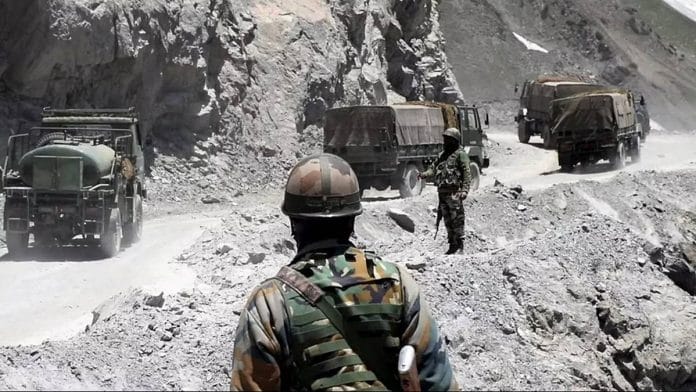As we get ready to celebrate the 23rd anniversary of Kargil Vijay Diwas, while mourning the loss of more than 500 soldiers—most of whom were in the early part of their youth—there’s something else that must weigh heavily on our conscience: the number of soldiers committing suicide and dying of other non-war reasons.
There have been 819 suicides—642 in the Army, 29 in the Navy and 148 in the Air Force—in the last five years, Minister of State for Defence Ajay Bhatt told the Rajya Sabha this week. This is disturbing, and would be even more alarming if details of physical casualties were also added. Leaving aside the pain of families involved here, this is not just a loss of trained workforce but also hurts the morale and motivation of other personnel in the units/sub-units. The trend calls for an immediate surgical strike.
The suicide of soldiers had drawn the attention of the defence forces and the matter was referred to the Defence Institute of Psychological Research (DIPR). The institute came up with several recommendations, some of which, like timely grant of leave and enhanced allowances, have been implemented. Additionally, some units and formations have adopted additional measures such as counselling, helplines and medical support to ensure a positive mental health state for soldiers in all ranks. Despite this, suicide cases continue to rise. While institutionalised mechanisms are needed, here are some important factors and recommendations that can go a long way in mitigating the crisis of suicides in the Indian military.
Also Read: ‘Overage’ at 21, rural India’s Army aspirants are running for their lives — and out of time
Psychological evaluation
While physical, medical, written and other factors are already built into the selection process, there is now an urgent need to include psychological evaluation of candidates at the entry level so that individuals with suicidal tendencies can be excluded from joining the defence forces. Of course, it will be a challenge to implement this suggestion, but the evaluation should be done, including finding those with any tendency to commit fratricide. The assessment to determine such negative traits, to make it part of the exclusion criteria, should be done for all ranks—and not just for personnel below the officers’ ranks.
At the intermediate career stage, preventing suicides becomes all the more complex. From the change brought upon by joining the Services to entering into a marital relationship, an individual needs to grapple with multiple life dynamics. For this, a fresh psychological evaluation should be done at the age/service year, during which maximum suicides take place, as per the data. Any negative outcome in the psychological assessment should lead to immediate steps such as professional counselling, buddy systems, feedback on domestic issues and their resolution, and discreet watch to eradicate the possibility of soldiers taking extreme measures.
Moreover, there is a pressing requirement to pragmatically look at all the entitlements available to the soldiers. Instead of keeping different pay scales and allowances based on the posting — whether the place has insurgency issues or has difficult terrain — a common Siachen allowance model should be used. The current allowances are heavily biased against the personnel below the officer rank and this needs to be corrected. A common value-based approach is a crying need.
All change begins at home, and it should be no different in this case. A majority of soldiers in the Indian Army have rural backgrounds. Despite multiple letters from the central government and some state governments, civil administrations do not measure up in a number of cases to address the concerns of the soldiers ranging from litigation to police cases and disturbances from the neighbourhood and villagers. This affects them adversely as their problems remain largely unresolved. Soldiers don’t get adequate respect in society. All these aspects put them under pressure, and at times, force some of them to take their own lives. The entire response of the civil government matrix needs to be analysed to implement measures that can address the concerns of the soldiers positively and in a timely manner.
The loss of soldiers’ lives through suicides, fratricides and physical casualties is likely to be higher than all the deaths across all wars fought by India. This will be evident from the data, if compiled, since Independence. This is a serious issue and a comparison of data with civil society should not give any solace to the defence forces, even if it is better placed. There is an urgent need to professionally analyse the issue and adopt a whole-of-the-government approach. This doesn’t just concern the defence forces but has implications for India’s national security.
Maj Gen Ashok Kumar, VSM (Retd) is a Kargil war veteran and defence analyst. He is visiting fellow of CLAWS and specialises in neighbouring countries with a special focus on China. He can be contacted at trinetra.foundationonline@gmail.com and tweets from @chanakyaoracle. Views are personal.
(Edited by Srinjoy Dey)






